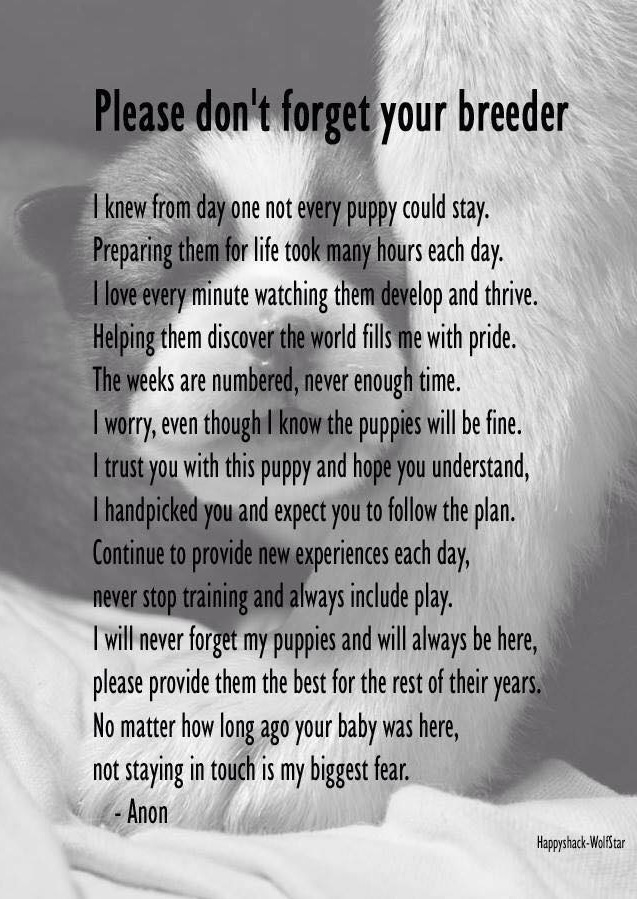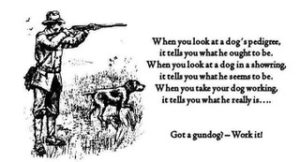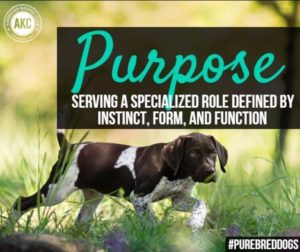- Action and style – this reference is to the way a dog works when hunting or retrieving, particularly used in the spaniel world.
- Back wind – wind directly coming from behind the handler.
- Blind retrieve – a dummy/bird retrieve which has either fallen or been placed out of sight of the dog.
- Blinking – is when a dog finds game and refuses to retrieve it.
- Cheek wind – wind direction from left or right of the handler.
- Cold game – previously shot game such as pheasant, duck, partridge etc, which is cold stored or frozen and can be used for “out of season” retrieving practice.
- Cover – natural or planted vegetation which serves as both protection and concealment for game.
- Creep/creeping – a term used to describe a gundog that slowly moves forward when told to sit.
- D/DC – stands for docked and dew clawed.
- Dead – a verbal command given to a dog to release a retrieve.
- Decoy/distraction – when retrieving, any object that may distract a dog away from what it has been sent to retrieve.
- Drive – a term to describe the speed and style
- of a gundog, especially when entering thick cover such as bramble.
- Dummy – made from various materials and comes in numerous shapes, the standard object for teaching retrieving.
- Eye wipe – the term is used when one dog fails to find a retrieve and then another dog is successful. In the case of a field trial it is found by one of the judges.
- False pointing – when a dog points but no game is produced.
- Fetch – a verbal command used to send a dog out on a seen retrieve. Commonly used for marked retrieves.
- Field Trial – a competitive event where gundogs compete against one another on live game. There are field trials for retrievers, spaniels, pointers and setters.
- First dog down – a field trial term used to describe when the first dog is sent for a retrieve of an injured bird and fails to find it.
- Flush – the act of finding and flushing (making it fly or run) game that is hiding in cover for the Gun to shoot.
- FTAW – “Field Trial Award Winner”. A dog that has won an award at a field trial, for example Certificate of Merit (COM) or higher, but not actually won the trial itself.
- FT Ch – “Field Trial Champion”. A dog that has won at least three days’ worth of field trial open stakes.
- FTW – “Field Trial Winner”. A dog that has been placed first in a field trial.
- Gallery – a group of individuals observing a field trial; an audience.
- Game – any species that can be legally hunted for sport, such as pheasant, partridge, grouse, rabbit or hare.
- Game bag – a bag for carrying retrieved game.
- Game sense – a dog’s ability to use its natural senses and ability to find dead or injured game.
- Game steward – someone who will carry and dispatch game for a field trial.
- Get in – a spoken command given to a gundog normally meaning to “get in” water or cover.
- Get on – as per the command “back”, a verbal instruction used to indicate to your dog to proceed in a straight line until finding a dummy/bird, or can be used to start a spaniel hunting.
- Get out – a verbal command given to a gundog when using hand signals to send them either the left or right.
- Give – is a verbal command used to get a gundog to release the retrieved item held by the dog.
- Go back – used to send your dog in a straight line until finding a dummy/bird. Often associated with blind retrieves rather than marked retrieves.
- Go back and fetch – mainly used by HPR handlers when sending the dog out for a retrieve.
- Gun sense – a dog’s ability to have awareness of the swing of a gun and to follow the general direction of the shot.
- Gun shy – a dog that fears loud noises, in particular the sound of gunfire.
- Handle – to be able to direct the dog when at a distance from the handler.
- Handler – a broad term relating to anyone in charge of a gundog.
- Hard mouth – a dog that regularly damages game when retrieving. Considered to be a major fault in gundogs.
- Heel – a command that requires the dog to walk beside its handler (normally on the left hand side) both on and off lead.
- Hi lost – a verbal command given to a gundog meaning to hunt in a particular area when out
- on a retrieve.
- HPR – a term used to describe a continental group of gundogs that: hunt, point and retrieve.
- Hup – a verbal command to “sit”, most commonly used in the spaniel world.
- Line (taking a line) – the route a dog takes to the game or dummy going out, and on return to the handler, especially when on a runner (injured but not dead game)
- Long line – a very long training lead.
- Making good the ground – after the initial flush, finding and producing any birds remaining in the immediate vicinity of the original point. This tends to refer to the pointing breeds.
- Marked retrieve – a retrieve that that has actually been seen by the gundog.
- Memory retrieve – a retrieve that has been placed in view of the dog, but a period of time and varying distance has elapsed before the dog is actually sent for the retrieve.
- Over – a command instructing the dog to jump, or get over, any obstacle such as a stretch of water, a fence, ditch or fallen tree.
- Pace – the speed at which the dog hunts.
- Peg dog – a dog that sits next to a peg and its handler, the Gun, during a drive and may retrieve shot game on command at the end of the drive.
- Pegging – catching live uninjured or unshot game.
- Pick-up dog/Picker-up – a handler and dog(s) who stand well behind the gun line and systematically retrieve the dead and injured game.
- Point/pointing – a gundog that points at game to indicate to the Gun/handler where the quarry is, normally the HPR breeds or pointer/setter breeds.
- Positive Training – a modern approach to gundog training where a food treat or a clicker is used as a way of showing the dog approval of its actions so that it might do it again.
- Pottering – refers to a dog that hunts without pace or style, or one that lingers on an old scent, leaves it, and then comes back to it.
- Pricked – game that has been shot and potentially injured, but not killed.
- Quartering/quarter – the methodical side-to-side hunting pattern that a flushing or pointing dog is trained to follow in order to cover the ground efficiently and thoroughly.
- Recall – the act of the handler calling the dog to come back to them.
- Retrieve – the sending of the dog and bringing back to hand either a dummy or game, the complete act.
- Run – in a field trial or working test, this describes the activities that occur while a competitor is under the control of the judge.
- Run-off – an additional test or run at a field trial or working test. This is used when a judge has been unable to separate two, or sometimes more, dogs for a first place or an award.
- Runner – a shot and injured bird or ground game that leaves a scent trail along the ground and requires picking up immediately by a dog so it can be humanely dispatched.
- Running in – when a dog leaves a handler without being sent to retrieve a dummy/bird.
- Slip lead – a lead used by gundog handlers. slip lead is a combination of both a dog lead and a dog collar normally made of hemp or nylon.
- Soft mouth – a dog that will pick up and hold game softly, but firmly on the retrieve.
- Steadiness – a required skill of any gundog, it should sit still when a bird, ground game or even a dummy is flushed or thrown, or when a gun is fired.
- Sticking on point – When a dog is reluctant to flush pointed game.
- Style – the tail and body action of a dog when hunting for dummies or game.
- There – a verbal command given to a gundog to hunt in a particular area when out on a retrieve.
- To back – to honour the point of another dog on sight, this would normally refer to the pointing breeds.
- To draw on – To advance steadily on point towards game, this would normally refer to the pointing breeds.
- To road in – to work out a scent from point to production, this would normally refer to the pointing breeds.
- Tongue/squeaking – when a dog makes an excited noise such as barking, whining or squeaking while working. This can often occur on the dog’s way out to a retrieve and is considered a fault in gundogs.
- Whistle command – is the common way that gundogs are controlled by the use of a natural or manufactured whistle.
- Working test – a competitive event at which gundogs compete. They are normally held in the spring and summer months and use canvas dummies rather than live game.
Read more at https://www.shootinguk.co.uk/gundogs/gundog-commands-95850#IpJOvAmvOJDUYy7q.99



